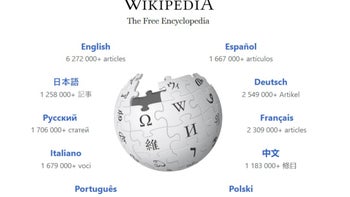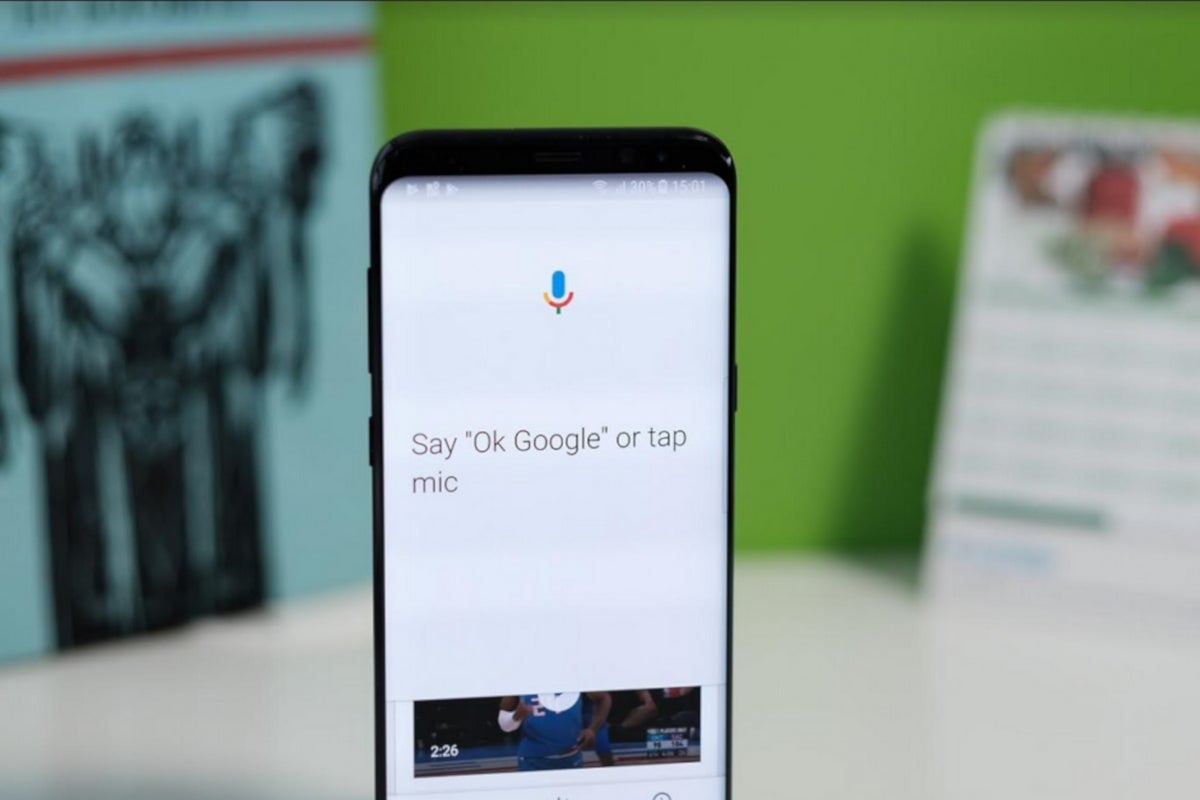Big Tech firms will soon have to whip out their wallets in order to use Wikipedia

Many tech firms rely on Wikipedia for information that is passed along to users. Google Assistant, Siri, and rivals including Amazon's Alexa often reply to queries by repeating information gleaned from Wikipedia and the latter does not charge these cash-rich companies for the data. Google tried to build its own rival by creating a service called Knol (short for knowledge) that would give the principal author of an article a slice of the advertising money generated. That failure caused Google to hold on to Wikipedia even tighter. Not only does Google use excerpts from Wikipedia for its Search app, it also posts links to Wikipedia content.
Wikipedia to start charging Big Tech firms to pay for content
A report from Wired indicates that Wikipedia now wants to be paid for providing big tech firms with information. Today, the Wikimedia Foundation, which offers Wikipedia in over 300 languages, is launching Wikimedia Enterprises. This will be the conduit through which Wikipedia gets paid for providing info to Big Tech firms. Enterprise will be responsible for the sale and delivery of Wikipedia content to the giants like Google and Apple. Eventually, smaller companies will be allowed to pay for this information as well. People familiar with the situation between Wikipedia and Big Tech say that talks are underway and an agreement might be reached by June. The talks right now are said to focus on the reaction to an agreement by the thousands of volunteers that donate their work and time to the web site. Every two weeks, Wikipedia has a "data dump" in which everything that appears on the site is made available. This is how Big Tech firms get to import Wikipedia on their platform without any help from the foundation.

Some information passed on by Google Assistant comes from Wikipedia
Lane Becker, a senior director at the foundation, has been working on the enterprise project along with a small team. He says, "This is the first time the foundation has recognized that commercial users are users of our service. We’ve known they are there, but we never really treated them as a user base." Wikipedia plans on continuing to make the free option available to the enterprise; this means that according to the foundation's chief revenue officer, Lisa Seitz-Gruwell, Wikimedia Enterprises' chief rival will be Wikipedia itself.
For the money that they might pay for the enterprise version of Wikipedia, the tech sites will get real-time changes and a guarantee of certain data speeds as well as the level of customer service commensurate with a paid venture. A contractual agreement means that those tech firms that sign a deal with Wikipedia will receive the latest information while Wikipedia gets credited for the data it supplies. And instead of using its own servers, the enterprise version of Wikipedia will be hosted on Amazon Web Services (AWS). Content will be updated rapidly. The foundation says that it doesn't expect enterprise to become the primary source of the money it needs for funding the $100 million budget. That will still come from donations and grants. But Seitz-Gruwell says that obtaining revenue from companies will give the foundation more stability. "We have a big job ahead of us, no doubt about it," the chief revenue officer says.
While the foundation says that it will still rely on donations and grants, those might become harder to obtain if the people that have made contributions in the past start thinking about all of that corporate money flowing in to Wikipedia's coffers. Another issue is that Wikipedia could become more dependent on the enterprise and will have to give in to the demands of its corporate customers. The whole idea of having corporate customers paying for content first sprung up in 2018 when Seitz-Gruwell criticized Apple in an interview for continually taking and taking from Wikipedia without giving back.










Things that are NOT allowed: